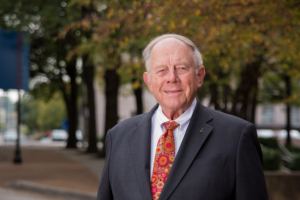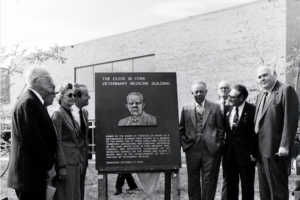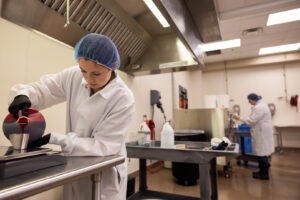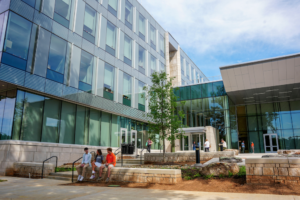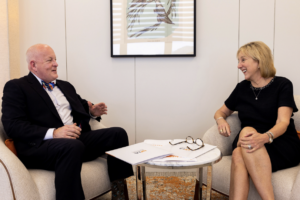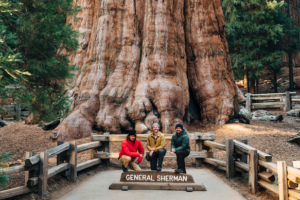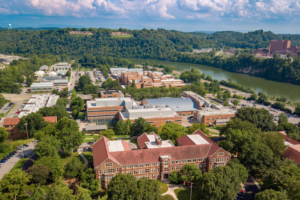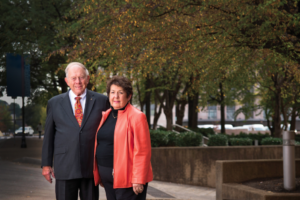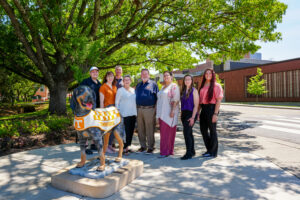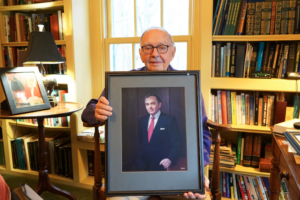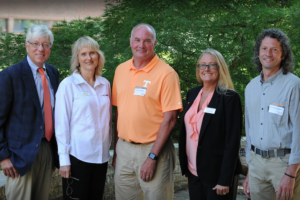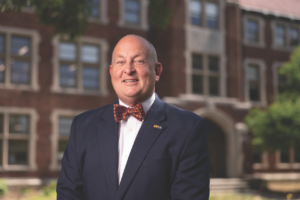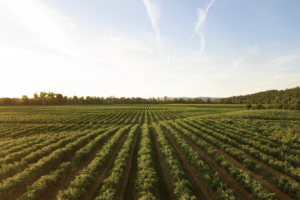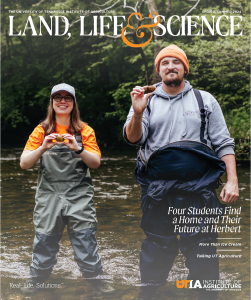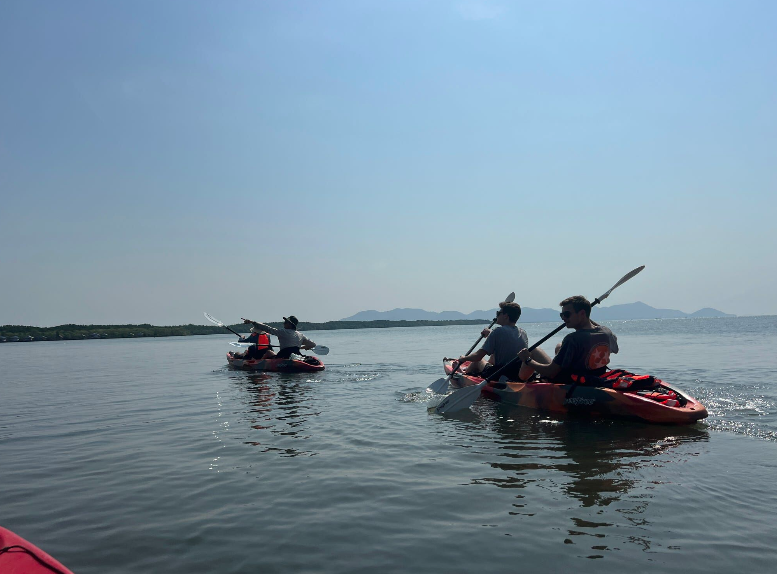
Standing next to Cambodian students for an agricultural lesson can be an education of its own, some students at the Herbert College of Agriculture discovered during a trip to Southeast Asia.
In January 2024, fifteen Herbert students took part in a study-abroad experience organized by the Smith Center for International Sustainable Agriculture. The destination for their two-week adventure was Southeast Asia— specifically, Cambodia and Vietnam. Undergraduate and master’s level students in the delegation represented majors as diverse as animal science, agricultural education, and biosystems engineering. In Cambodia, they visited a peppercorn farm. To help bolster the mangrove population in Kampot, they planted trees in a protected mangrove forest. They toured several agricultural technology parks and teamed with Cambodian high school students to plant a school garden. They also learned about silk production. The students experienced Cambodian culture, as well, as they toured the Angkor Wat Temple Complex, learned about the social impact of the Phare Circus, and explored the National Museum of Cambodia.
Agricultural education student Campbell Emerson was a freshman when he took part in the Cambodia program. “Growing up, I was only ever exposed to agriculture in Tennessee. I never cared to take notice of the industry anywhere else because I thought it didn’t relate to me. I was hesitant to go on this trip for that very reason, but I very quickly changed my mind,” he says.
“There is so much to learn about and share in agriculture across the world. I was able to actually participate in activities related to agricultural education at a high school alongside the Cambodian students. Seeing this process was eye-opening and knowing the institute has some type of impact is inspiring,” Emerson says.
Building the Institute’s International Ties
UTIA Senior Vice Chancellor and Senior Vice President Keith Carver joined the students on the delegation to Cambodia. In Phnom Penh, he inked a memorandum of understanding with the Royal University of Agriculture. The agreement strengthens the Smith International Center’s partnerships in the nation and creates additional opportunities for UTIA faculty, staff, and students in Southeast Asia.
“It was great to engage with our Herbert students and see firsthand how global experiences can impact them,” Carver says. He added that it was important to build upon the Smith International Center’s existing partnerships in Cambodia. “Being able to connect with an educational partner like the Royal University of Agriculture creates long-term opportunities for our faculty and students.”
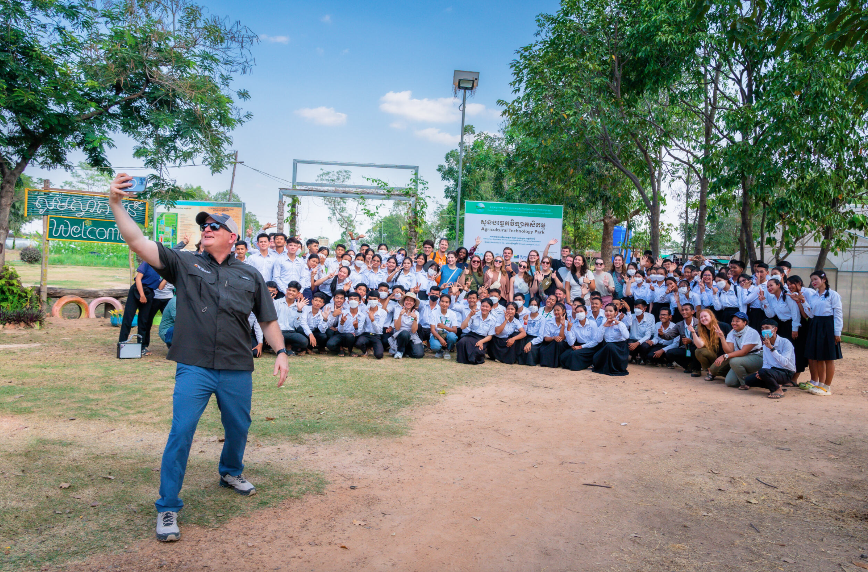
Junior Noah Smith, an agricultural leadership major, says he was inspired by the signing ceremony. “Seeing the collaboration between the University of Tennessee, the US Agency for International Development, and the Royal University of Agriculture made me humble and proud that I attend a university that not only achieves the land-grant model in the United States but also internationally as well,” he says. “This is the kind of work I’d like to do in my own career. Seeing agriculture flourish around the world is the only way that society will be able to keep up with the growing world population. This partnership and others are the way that the US can continue to improve the international agriculture industry.”
National Fellows Experience for Master’s Students
Six Herbert master’s students were members of the delegation that traveled to Cambodia. The students are participating in a prestigious USDA National Needs Fellowship program funded through the National Institute of Food and Agriculture. The program focuses on international trade and development and, at the institute, is coordinated by professor Andrew Muhammad, an internationally recognized policy expert and Blasingame Chair in the Department of Agricultural and Resource Economics.
Since August 2023, Muhammad’s department along with the Department of Agricultural Leadership, Education and Communications and the Smith International Center have been training master’s students participating in the National Needs Fellowship program. To fulfill the global experience component of the program, the current set of fellows took part in the Cambodia study-abroad course and then continued to Vietnam for in-depth study of international trade and development.
Their experiences in Vietnam included learning about the country’s major industries, their trade with the US, and the importance of the Vietnamese economy to the US. The fellows also engaged with US Department of Agriculture officials stationed in Vietnam who are responsible for maintaining trade regulations between the US and Vietnam.
“It was fascinating to learn about the connectedness of our economies, as well as the implications of trade policies implemented on both a short- and medium-term basis,” says Michelle Boutell, who is completing a master’s degree in agricultural leadership, education and communication.
“Participating in this program really highlighted the far-reaching consequences of international trade policies and their significant influence, not only on growers in Tennessee but also on industries on the other side of the planet,” Boutell says. “It’s helped me better understand the global dynamics of agricultural trade and how they impact businesses, farmers, and people both at home and abroad.”
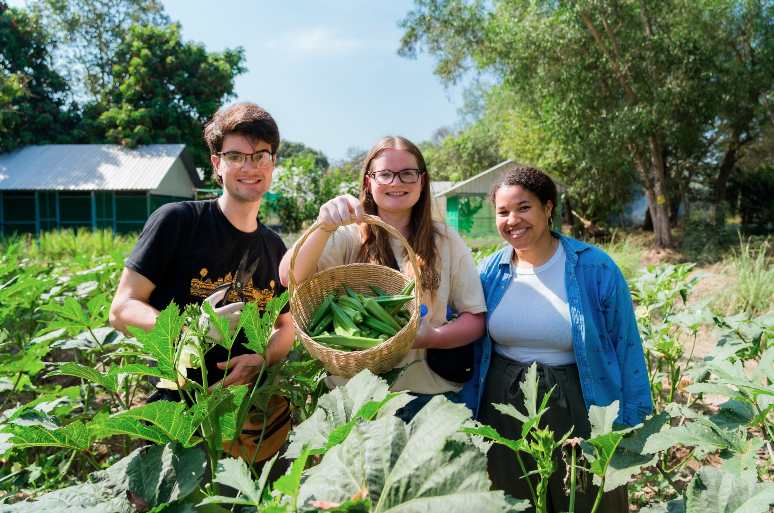
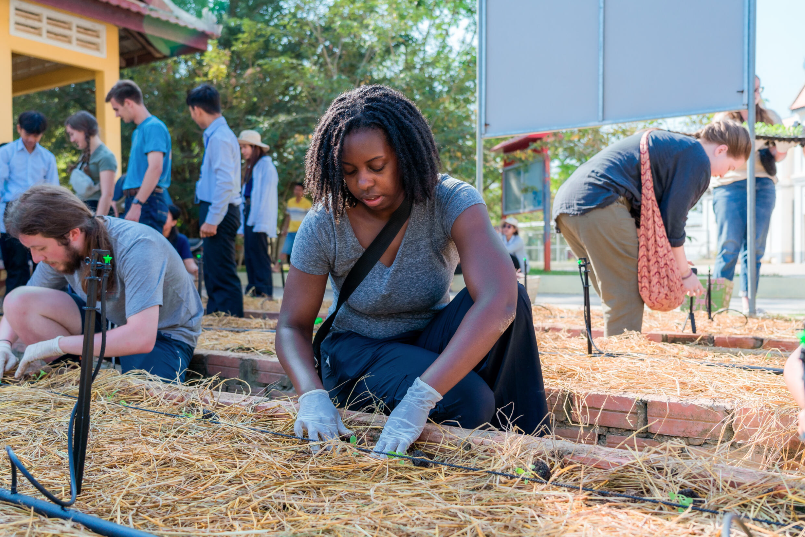
Making International Experiences Available to All
The Herbert College of Agriculture and the Smith International Center are seeking to make global experiences like those in Cambodia accessible to all students while building awareness that international agriculture is relevant for all students, across all degree programs.
The college and the Smith International Center are working toward the goal of ensuring that at least half of all current Herbert students have international experiences before they graduate. Providing international experiences to students in the College of Veterinary Medicine is also a priority. Key experiential learning opportunities like these create more well-rounded and dynamic graduates and enhance their future employment opportunities. The programs create the space for students to expand their knowledge, define their values, and build skills in a way that a classroom doesn’t provide.
Seventy-five Herbert students participated in study-abroad programs in 2023, visiting thirty countries and six continents. The same year, thirty-eight College of Veterinary Medicine students engaged in global experiences. Part of providing even more students with these experiences involves making the programs more financially accessible.
Scholarship support for studying abroad is available from the Herbert College of Agriculture Endowment, which provides funding to support student success and experiential learning opportunities, including studying abroad. The Smith International Center Endowment also provides financial support as does the UT Center for Global Engagement, which awards undergraduate study-abroad scholarships.
“A standard we hold to is that cost should never be the number one reason a student chooses not to study abroad,” says Gracie Pekarcik, program manager for the Smith International Center’s Farmer-to-Farmer Agricultural Leaders of Tomorrow (ALOFT) program.
“Access to international education for our students has never been more attainable than it is at this moment,” Pekarcik explains. “We recognize the benefits and have made it a key point to support students in studying abroad by promoting the development of new program topics and locations, as well as rolling out increased study abroad scholarships for undergraduate students. We want study abroad opportunities to be available to all students.”
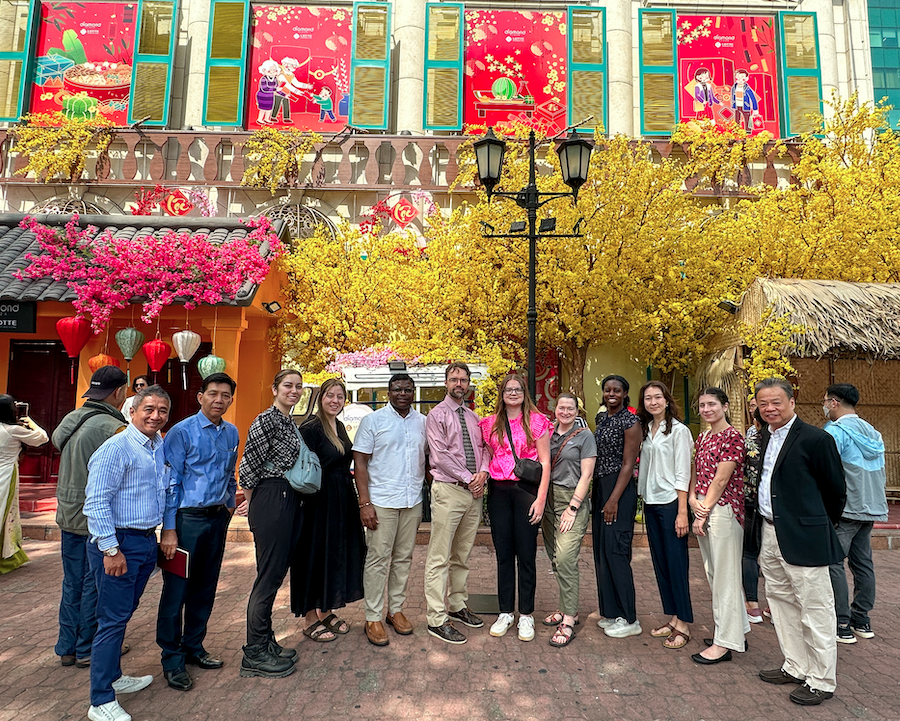
Explore, engage, and experience the world with the Herbert College of Agriculture and the College of Veterinary Medicine
Explore More on
Features
MORE FROM THIS ISSUE

